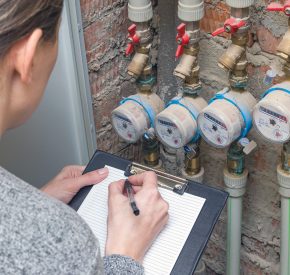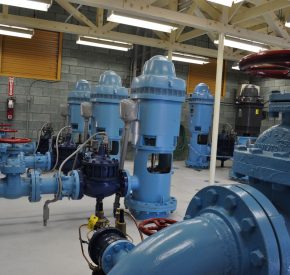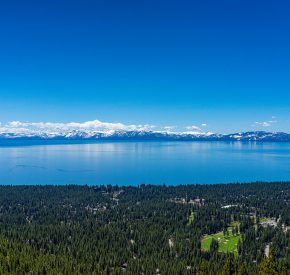
Sewer

About IVGID’s Sewer Infrastructure
In order to treat an average of 474 million gallons of sewage annually our sewer infrastructure assets include:
- 105 miles of gravity lines and 14 miles of sewer force main between 6” to 24”
- 1,926 sewer manholes
- 20 sewer pump stations
- A wastewater treatment plant able to treat up to 2.1 million gallons daily
- 20 miles of effluent pipeline to Carson Valley
- A 900 acre wetland site located in the Carson Valley for effluent water
Total Sewer infrastructure replacement value: $325,000,000
Total assessed value of water and sewer infrastructure: $113,474,000 (2014 IVGID Audit Report)
Constructed in 1962, the IVGID Wastewater Resource Recovery Facility (Treatment Plant) receives an average of 1.3 million gallons of wastewater daily. The collection and export system for wastewater includes: 100 miles of sewer pipelines, 18 pumping stations, a half million-gallon storage tank, and a twenty-mile export pipeline taking treated effluent out of the Tahoe Basin for final disposal The wastewater treatment plant processes and disinfects wastewater using conventional biological treatment processes and solids handling facilities.
The wastewater treatment process from start to finish takes approximately 15 hours. The solids removed from the process are sent to Bentley Ranch for composting with other organic material. The export pipeline transports the plant’s secondary treated effluent to the IVGID wetlands in Douglas County.
The Wetlands facility was built in 1983 with 87% funding from EPA Grants. The treated wastewater goes through final treatment by disposal through evaporation, transpiration (evaporation through plants), and percolation (seepage through soil). The water passes through several wetland lagoons on 290 acres of the 770 acre site. The system works in harmony with the existing warm-water wetlands, adapts to year-round fluctuations in weather and temperature, and meets state and EPA water quality requirements while providing unique wetlands habitat. The site includes a natural warm-water wetland and supports over 70 species of birds and mammals.
FOG – Fats, Oils, Grease
Residential homes need to make sure they are not putting fats, oils and grease (FOG) down their drains. These items can cause sewer backups into a home and lead to costly maintenance in the sewer infrastructure. FOG should be collected in a can or jar and then be disposed of in the trash. Reusable grease cans and heat resistant plastic liners are also available at the Public Works office for residents.
If you dump leftover food scraps, oils and grease down the drain, the greases and fats stick to the inside of the pipes. Grease causes sewer blockages and overflows that damage homes and threaten the environment. The best way to solve grease blockage problems is to keep FOG out of the drain in the first place. These items cause costly preventative maintenance in the sewer mains and pump stations, leading to increased sewer charges.
What Not To Flush
Flushable wipes, facial tissue, paper towels, cotton swabs and cotton balls, feminine sanitary products, FOG (fats, oils or greases), pharmaceutical products, unused medicine, and HHW (household hazardous waste). Toilets are not trash cans!
Flushable wipes are not flushable! Flushable wipes don’t disintegrate; try pulling and tearing at one or soak one in a cup of water for a day. What you’ll find is they don’t breakdown. Imagine what happens in your pipes, our sewer mains and sewer pumps. Wipes can clog the connection to the sewer line causing backups resulting in expensive repairs for the homeowners and/or cause back-ups that spill sewage into our fragile mountain environment.
- They cause wastewater backups into homes.
- Flushable wipes create blockages in wastewater pipes.
- They damage pumps and motors in the wastewater system.
- Please dispose of flushable wipes into a trash container.
Many drug stores offer a return program on unused medicine. Rite Aid and Safeway in King’s Beach both accept medicine; Raley’s in Incline Village does not. If you cannot access a recycling option, you may dispose of old medicine in the trash by crushing the pills, placing them back in the original package, place the container in a plastic bag and wrap the bag with tape; then dispose of it in your household trash.
RV Discharge
Attention All RVers: Our treatment plant at 1250 Sweetwater Road offers RV dump capability Monday – Friday from 8 a.m. to 4 p.m. For questions call (775) 832-1290.



